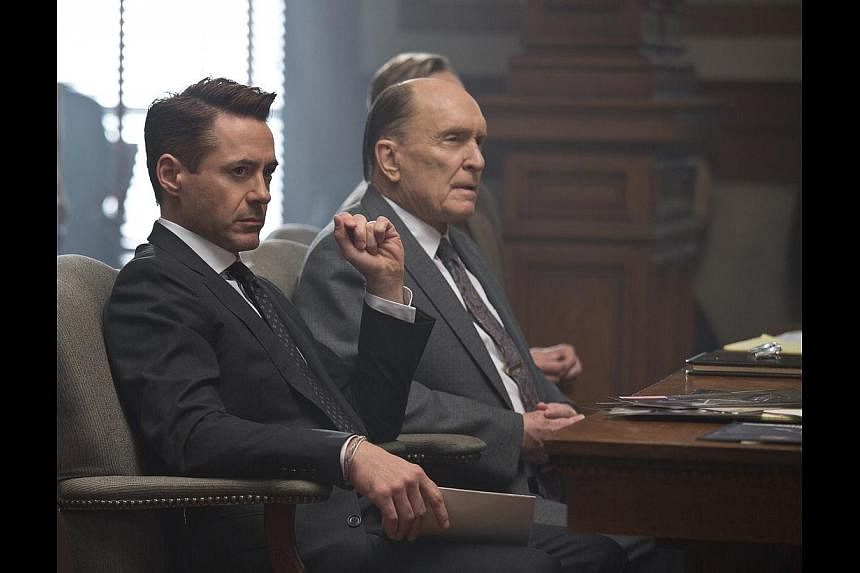Review Drama
THE JUDGE (NC16)
141 minutes/Opens tomorrow/***
The story: Hank Palmer (Robert Downey Jr) is a Chicago lawyer notorious for his killer instinct and lack of scruples. The death of his mother forces his return to his hometown in Indiana, where he reaches out to his upright father, local judge Joseph (Robert Duvall), who disapproves of his ways. Hank also reconnects with old flame Samantha (Vera Farmiga). When Joseph is accused of murder, Hank steps in to plan the defence, which only deepens their differences.
All the signs point dangerously to "vanity project" - Downey and wife Susan are producers; he is in every scene, digging into big, scenery-chewing moments; and director David Dobkin (Shanghai Knights, 2003; Wedding Crashers, 2005) appears to be of the pliable, actor-friendly variety.
Yes, this work, at more than two hours, is overlong and baggy in a few places and sentimental and manipulative in others. But for what it is - a Downey prestige project - the egos could have been far more intrusive.
What you get is a middle-of-the-road, life- and values-affirming story about sons and fathers.
It does not open up new ground in that particular relationship - fathers view unconditional love as fostering weakness, so sons grow up aching for paternal approval. But it does present its arguments in an easy-to-consume package that stays just on the right side of cliche and mawkishness.
Far too much time is spent pandering to the facile belief that small towns are the bedrock of solid American values of neighbourliness and decency, and cities are cesspools of ambition and back-stabbing.
There is a weak attempt at breaking the white-picket-fence stereotype in the character of Samantha, a cafe owner, ambitious businesswoman and single mother, but that is diluted after she, too, joins the chorus about the awesomeness of small-town America.
After a while, the song becomes a little patronising, but that image is probably better than the other Hollywood stereotype, that of rural burgs being the home of inbreds and axe murderers.
Dobkin, thankfully, does not hit the emotional notes too hard, especially when the story shifts from father-son reunion in the first third to courtroom procedural in the second, all the way to the finale, when the verdict is returned.
He wisely lets the story play itself out naturally, letting the acting team of Downey-Duvall do the heavy lifting.
The back and forth between the two is in dire need of sharpening, but the two old pros somehow make it work.


